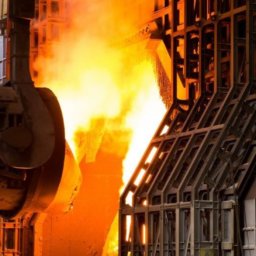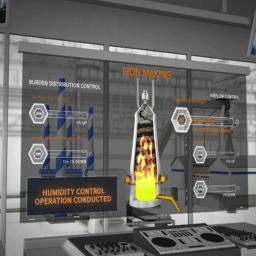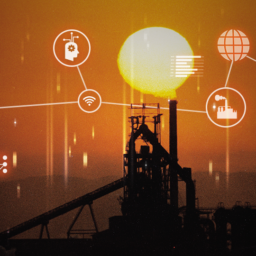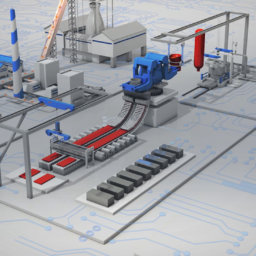Planes, trains, and automobiles — they have been the arteries of the transportation industry for a long time. These vehicles, along with other methods of transportation, remain vital as autonomous transportation emerges in full.
Many people have heard of self-driving cars, but this is just one example of unmanned, autonomous transportation. Ferries, pods, drones, and other vehicles are all part of the innovative trend toward vehicles that operate on their own, providing great opportunities to companies looking to invest.
Why Should People Care About Autonomous Transportation?
Autonomous transportation is emerging across the world, from personal vehicles to Tesla’s proposed semi trucks that drive in convoy with a lead vehicle handling autonomous follow trucks. Intel is also planning to test a fleet of one hundred autonomous cars and Hyundai’s planning to showcase its self-driving technology at the biggest winter sports event of 2018.
While many have heard of self-driving cars and other road-based vehicles, it may come as a surprise to learn just how far technology has advanced in autonomous transportation. The Swiss bank UBS, suggests that autonomous airplanes could be in place by 2025, a feat that would save airlines $35 billion a year. Clearly, the benefits are drastic and it is becoming essential for companies to invest in making autonomous travel work.
Even further into the future, companies like Next Future Transportation are envisioning pod travel, through which individual vehicles will autonomously transport people from point A to point B.

Next Future Transportation’s autonomous pod (Source: Next Future Transportation)
No matter the type, the economic impact of autonomous transportation technology is unavoidable. Boston Consulting Group expects that the driverless car market will be worth $42 billion by 2025 and $77 billion by 2035, and IHS suggests driverless car ubiquity will hit around 2050.
In terms of what these automated vehicles offer to the public, the Eno Centre for Transportation reports that if 90 percent of American roads were autonomous, accidents would drop from 6 million a year to 1.3 million; deaths would fall from 33,000 to 11,300. Add in better traffic conditions, higher fuel efficiency and extra time gained from not driving, and it’s easy to see why companies are taking notice of this tech sector.
Who is Investing in Autonomous Transportation?
Autonomous transportation entails investment from various industries from materials to technology, and major players are making early moves. Tesla is a good example of a specialty vehicle company determined to see autonomous transportation become a worldwide reality.
Big names in traditional transportation are also jumping aboard. General Motors purchased Cruise Automation, and Ford has invested in an AI startup, Argo AI. Audi has created a subsidiary, the SDS Company, focused on self-driving technology, and BMW has formed an alliance with Intel and Mobileye.
There are also auto suppliers getting into this market, such as Magna, a supplier that is manufacturing vehicles as well as providing the parts to help more traditional companies jump into automated vehicles.
Tech giants like Microsoft are getting involved, too, collaborating with automakers to include their own technology in self-driving vehicles, as well as to research and develop automated transportation technology.
Whether companies are involved in creating the actual vehicles that will be automated, providing security and safety features, pursuing further research, or providing the materials needed to create these vehicles of the future, it is safe to say that this industry is growing rapidly.
Autonomous Transportation and the Steel Industry
A shift toward autonomous transportation is good news for the steel industry. At first glance, it seems steel consumption will decrease as fewer car accidents will lead to less demand for repair parts and more room to use other materials for aesthetic purposes. However, demand for high-strength, premium steels that are highly sought after in traditional cars will continue to increase.
Materials like POSCO GIGA STEEL provide greater strength and safety for automated vehicles, an important consideration when one considers a road full of cars driving themselves. While people may no longer be behind the wheel, they will want to know that their cars, and the cars around them, are made to the highest safety standards. Safety regulations for traditional cars are only getting tougher, and that won’t change with autonomous vehicles.
High-strength steel allows car makers to lightweight their vehicles without compromising safety. POSCO GIGA STEEL’s lightweight properties make it a sustainable solution for automated vehicles that aim to leave a minimal carbon footprint and maximize fuel efficiency. Even better, it is affordable; an important factor considering the overall cost of the technology and hardware that goes into automated vehicles.
The steel industry will also see a boost in the need for accompanying facilities for automated transportation, including manufacturing plants, parking structures, charging stations, smart roads and so on. While automated transportation may be high tech, there will be plenty of opportunities for those in the steel industry to provide material solutions to a rapidly growing market.
Cover photo courtesy of Auto Evolution.














